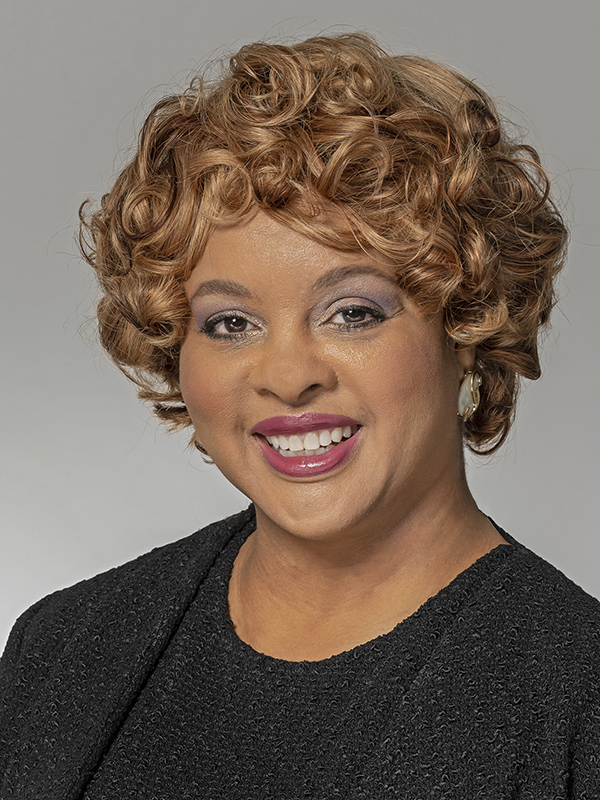The first Black female chief of surgery at an academic health sciences center, Dr. KMarie King, EMBA’17, relies on key leadership lessons to manage pandemic challenges

“We’re facing so many challenges in health care right now,” says Dr. KMarie King, EMBA’17, who joined Albany Medical Center (AMC) in July of 2021. “It’s a great opportunity for me to meet many of the people in the organization really fast. We’ve had to work together collectively to solve many of these issues.”
King left her prior position at Grady Memorial Hospital and Morehouse School of Medicine in Atlanta, accepting a role as AMC’s chief of surgery and the Henry and Sally Schaffer Chair of Department of Surgery. The move made her the first Black woman chair of surgery at an academic health sciences center in the U.S.
She jumped in quickly, making critical hires, setting up key infrastructure and forging relationships across the organization that would help her address pandemic-related labor shortages and incorporate innovative technologies swiftly. Long-term, she intends to strengthen the surgery department’s research capacity and quality controls, and hopes to implement technology and infrastructure to support those goals.
“I’m the sort of individual who, when I move, I like to get settled right away. I’ve been known to have my entire house unpacked and photos hanging on the walls within 24 hours. But trying to get my arms around this dual role – during a pandemic! – has required a lot of intense focus. Guess who still doesn’t have her house unpacked?” she laughs.
King credits her experience in the Heller EMBA program with some of the leadership skills she leans on today, particularly the coursework that focused on organizational change. “The lessons I learned in my EMBA program have been so effective for me as a leader,” she says. “I learned just how many conversations you have to have with key people to make a workplace culture shift.”
“It’s all about influence,” she continues. “You can’t just yell at people or demand that they do what you want. You want buy-in. If you talk to people, include their ideas, give them a chance to request modifications – all of a sudden you have a group plan, not just your plan.”
Today, King is using these lessons in consensus-building and leadership to respond to serious challenges resulting from the ongoing COVID-19 pandemic. As AMC faces the same labor shortages and demands for higher pay confronting health care organizations across the nation, King and her colleagues in hospital leadership now meet weekly to discuss recruitment and retention strategies. They’re pushing themselves, she says, to come up with creative solutions that respond to this ongoing adjustment in the labor market.
One of the pandemic’s silver linings, King notes, is that health care providers everywhere have been pushed to adopt new technologies, particularly telehealth. She’s seen patient no-show rates drop “precipitously,” noting that telehealth lowers the barrier to treatment for patients who would otherwise need to arrange childcare, pay for parking, or take additional time off of work to attend an in-person appointment.
“COVID revealed some of our weak areas in medicine, including our ability to be nimble and to adapt to new technologies,” she says. “Now, we know that telehealth will always be a component of health care delivery.”
Both of these challenges – fighting to retain underpaid workers and expanding access to care through telehealth – also relate closely to issues of equity and inclusion that King holds dear. At AMC, King joined a cohort of recent hires who are bringing a fresh outside perspective to an organization that has long recruited leaders from within.
“For me, diversity doesn’t end at race and gender and religion, it includes regional diversity. This regional diversity has helped us have new conversations, perspectives and ideas. When you have homogeneity of thought, it doesn’t allow for that,” she says. “When you have people at the table from different regions and backgrounds, who live differently and have different philosophies, it brings a richness to any complex decision making.”
King also emphasizes principles of equity and inclusion in her focus on patients, noting that she is not shy about calling out issues whenever she sees them. She says, “Whenever a decision is under consideration that I think could make a part of our patient population feel unwelcome, I call it out. This is where I bring something different to the table, because I can see it in a different way.”
